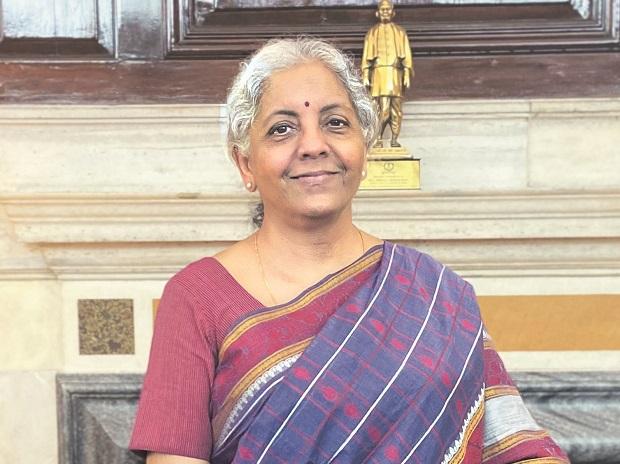The upcoming Union Budget should prioritise job creation and taxation measures that will help increase broad-based consumption, representatives from various industry bodies recommended to Finance Minister Nirmala Sitharaman and her team during their pre-Budget consultations on Monday.
Their suggestions included an employment-linked incentive scheme (ELI scheme) for the employment-intensive services sector and pilot programmes for a national rural employment guarantee scheme-like plan for cities. These industry bodies said there should be a focus on financing green energy and sustainable infrastructure initiatives. They, however, conceded that because of the current global macroeconomic situation, the private sector may still not see a complete revival of capital expenditure, and hence urged the Centre to continue increasing capex to support infrastructure investment.
“The external scenario is likely to remain unfavourable for some time. Hence, we must broad-base our domestic economy by creating new sectors of growth and driving employment generation to boost domestic demand, inclusion, and growth,” said Sanjiv Bajaj, president of Confederation of Indian Industries, during his interaction with Sitharaman and her top policymakers.
The finance minister had two interactions with representatives from India Inc on the infrastructure sector and climate change initiative. “To enhance employment creation in the economy, we suggest further reforms in the agri and food-processing sector with a great infusion of public investments in agriculture infrastructure,” said Saket Dalmia, president of PHD Chamber of Commerce and Industry.
The industry bodies sought an income tax cut for salaried classes in order to boost demand and consumption in the economy.
“To further boost domestic demand and increase the disposable income in hands of people, personal income tax should be reduced at all levels,” said Sumant Sinha, president of Assocham. Sinha called for the Budget to be a “Green Budget”, against the backdrop of the recently concluded COP27, as well as in light of India’s chairmanship of G20, for which financing of sustainable infrastructure would be one of the main items on the agenda.
ALSO READ: Cut I-T, review capital gains tax in Budget 2023-24: CII to govt
Bajaj said the Budget should address the sluggish recovery in demand at the lower end of the consumption strata by rationalising personal income tax slabs and rates at the lower end. This shall boost disposable incomes and also provide targeted relief from inflation, he said.
Besides an ELI scheme for the services sector and pilot programmes for an urban employment guarantee scheme, key suggestions by the industry bodies included the implementation of a plan to create coastal economic zones.
Sinha said that rationalisation of taxes on green energy products will help the country’s transition towards a green economy; Bajaj said there a development finance institution can be set up specifically to fund energy transition and climate change mitigation, and that MSMEs should be allowed greater access to green finance.
There were also calls for the government to do more on inflation pressure. “Food inflation in India triggered by supply-side bottlenecks has been worrisome, too. There is a need for a comprehensive road-map and coordinated action at multiple levels — Centre and states, multiple departments/agencies, etc — to manage the price situation,” industry body FICCI said in its presentation to the Budget team.
“Global uncertainty may impact the incipient revival in private capex and hence, public capex is critical to support demand and growth. The Budget should increase allocation to capital expenditure by 35 per cent, like last year, taking the total public capex to about Rs 10 trillion,” said Bajaj
PHD’s Dalmia suggested infrastructure investment in the economy must not be less than 10 per cent of GDP to achieve state-of-art infrastructure and to become a developed economy by 2047.
Among other suggestions, there were calls for a lower tax rate for new manufacturing entities, removal of conditions for restructuring of business, an amnesty scheme in Customs to end various litigations, and clarification and rationalisation on capital gains taxes.
Note:- (Not all news on the site expresses the point of view of the site, but we transmit this news automatically and translate it through programmatic technology on the site and not from a human editor. The content is auto-generated from a syndicated feed.))




Quality content is the key to invite the viewers to pay a quick visit the web page,
that’s what this web page is providing.
Your style is unique in comparison to other folks I
have read stuff from. I appreciate you for posting when you’ve got the opportunity, Guess I will just bookmark this blog.